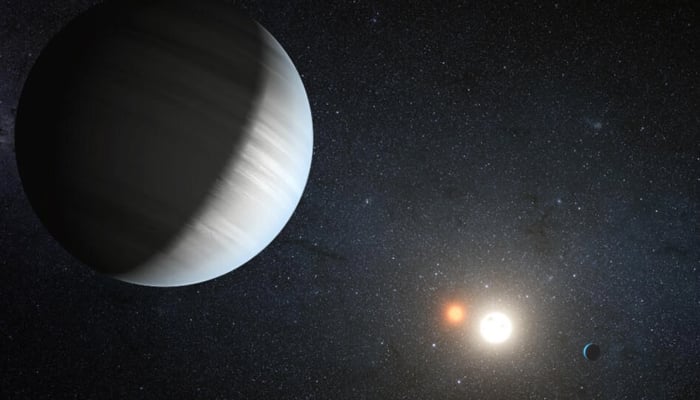This research may have answer about life on far away planets
Scientists identify possible places to search for life
April 29, 2024

Two astronomers have claimed that meteorites that travel in space can carry the signs of life and allow them to land on other planets, akin to a hypothesis called panspermia which maintains essential elements of life could be in different places in space.
Ancient Greek philosophers Anaxagoras, Anaximander, and Thales are also some of those who talked similarly about such a hypothesis.
A Swedish scientist Svante Arrhenius asserted that tiny particles could make their way with the help of Sun’s radiation pressure.
The two astronomers also suggested such a theory with a twist and corroborated it with statistics, according to Express UK.
They made a group of planets that have similar characteristics to our own.
They wrote in their statement: "Data shows that as life propagates across the galaxy, correlations emerge between planetary characteristics and location, and can function as a population-scale agnostic biosignature."
"By clustering planets based on their observed characteristics, and examining the spatial extent of these clusters," astronomers attempted to "demonstrate a way to prioritise specific planets for further observation — based on their potential for containing life."
Their findings are aimed to highlight the possible places in faraway planets where life could be present.
It is not the first time the panspermia hypothesis has been applied to make such arguments. In 2018, a paper published in the journal Progress in Biophysics and Molecular Biology found that life may not have originated on Earth, but was brought.
Experts at the Harvard-Smithsonian Center also noted in their study titled "Galactic Panspermia” that life or the necessary chemical components for life can be transferred between solar systems and galaxies through astronomical objects like meteoroids or asteroids.









